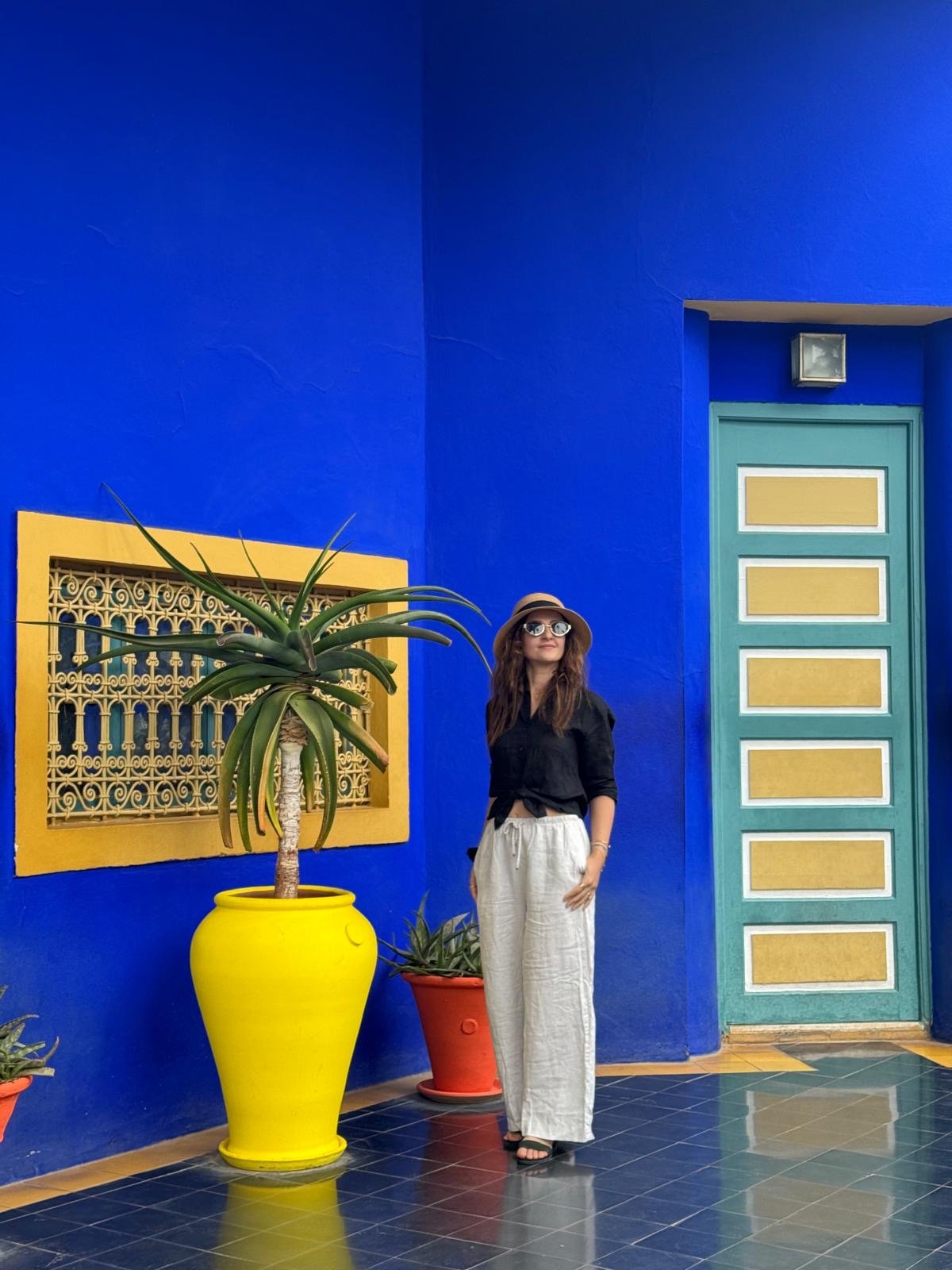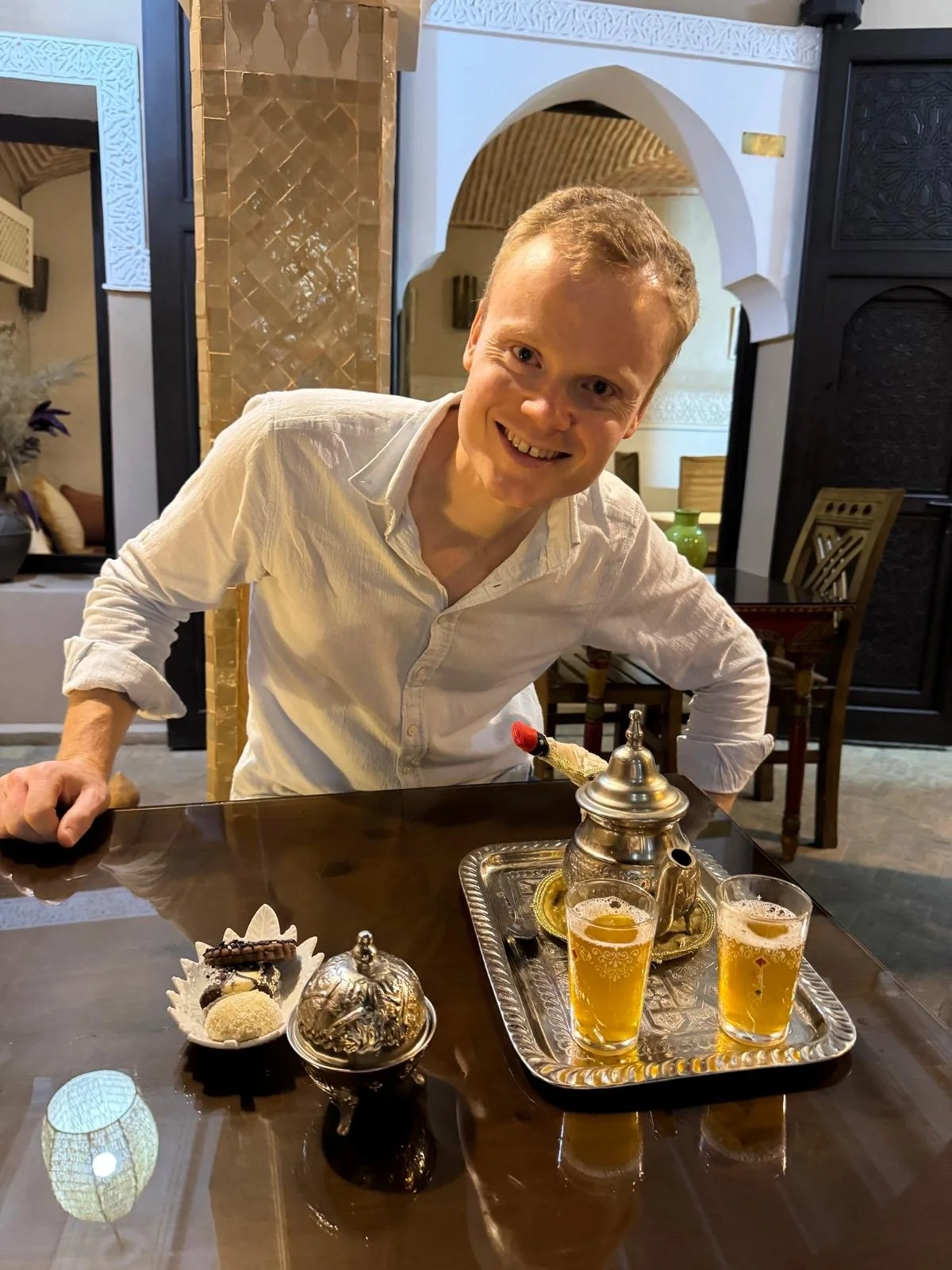Madness of Marrakech: My First Experience of ‘Africa’
At the age of 33, I had still never been to Africa. I had grown up reading Bryce Courtenay and Wilbur Smith novels about adventures in stunningly beautiful South Africa, battles in the deserts of Sudan and the tragic changes wrought on proud, dignified African people by colonialism. As I grew older, I marvelled at the window to another world that Chimamanda Ngozi Adiche’s accounts of growing up as a woman in Nigeria provided, and became more and more interested in running, leading me to read about the amazing rags-to-riches stories of East African champions. But despite an oh-so-nearly moment in early 2020, when I was one week away from catching a plane to Kenya to stay with some marathon runners I had met at a race in China before the global pandemic cancelled everyone’s holiday plans, I had still never set foot on that most enticing of continents. Last week, that changed. Turan organised a trip to Morocco, to escape the growing darkness of the British winter and experience a completely new place and culture. What ensued was my first taste of Africa. But it wasn’t to be anything like the stories I had read growing up.
We had chosen Morocco as a destination because it is one of the few places Azerbaijani passport holders can visit visa free (although no one had told that to the Passport Control officers in either London Stansted airport or Marrakech), and ridiculously cheap flights made it an intriguing option for a November getaway. We knew we were going to a country more akin to the Middle East than sub-Saharan Africa, but set off looking forward to the flavours, atmosphere and hospitality that the Arab world brings. This optimism and anticipation were to be short-lived – we were in no way prepared for what we would find in Marrakech.
We found the first ominous sign of what was to come when we touched down in the airport. It was 9pm at night, yet the queues for passport control were still horrendous. When we finally did make it to the passport control booth, Turan got the usual going over, and while the officer couldn’t find anything to question about my documents, he decided he had to spend a reasonable amount of time, so proceeded to get his phone out and watch Youtube for a couple of minutes before waving me through. By the time we finally made it to the hotel we were wrecked. But there was much, much more to come.
Hungry after the long journey, we set off into the Medina, the old city, to find some food. After less than a minute we came across locals fighting in the middle of the street. The catalyst appeared to be careless motorbike driving – we were soon to find out to our peril how dangerous and stressful this preferred mode of transport in the narrow streets could be. The ancient streets of the Medina were cobbled and winding, with barely enough room for more than two people to walk next to each other in places. Yet scooters would fly around corners, assuming there was no one coming the other way. Throughout my time in Marrakech, my blood boiled whenever we had to walk even just 10 minutes through the Medina, frustration and anger welling up at the sight and sounds of motorbikes whizzing by far too close for comfort. The Medina did have a unique atmosphere, but I was completely unable to enjoy it, focused as I was all the time on preserving life and limb.
The central square and intimate alleyways were a hive of activity, with the enticing smell of street food wafting around and plenty of exotic sights to see, with stall owners shouting to attract the attention of potential customers, trained monkeys putting on shows for tourists and even snake charmers plying their trade and adding to the unique feel. But I couldn’t help thinking that the atmosphere was no more special than what could be found in provincial Chinese cities 15 years ago, where it was possible to enjoy the sights, sounds and tastes of the markets without fearing death by scooter.
There were good times to be had. The local hotels, known as Riads, were oases of calm in amidst the bustle of the city, where Moroccan hospitality could be enjoyed to the full. The staff genuinely wanted to make guest stays as pleasant as possible, and it was a delight to chat to them over breakfast as they went about their business. But the best times were all to be found outside of the city. Day trips to the Atlas Mountains and the Saffron Fields in Ourika Valley, plus an overnight stay in the Agafay Desert were the highlights of the trip for us. The hiking in the mountains was superb, and it was possible to see locals in their natural environments there, which was refreshing after Marrakech, where everyone appears to have moved there to try and make money from the tourism industry. The Paradis du Saffron resort in the Ourika Valley was blissful, and we spent an afternoon simply relaxing in the gardens after trying their selection of barefoot, re-connect with nature-type activities. And at the festivities in the Agafay Desert Camp, where people from around the world danced the night away around bonfires in the clear desert air, it was easy to forget about the toil of the city and feel free.
This trip may not have been the most idyllic or have panned out exactly as expected. But in some ways, it felt like we learned more valuable lessons from it than from some of the best holidays and travels we have had. Travelling is an experience, and it is worth seeing it as such – experiences all add something to who we are and can’t be simply categorised as good and bad. I realised more and more throughout the trip that it was no use being upset that everything wasn’t perfect. It is important not to expect perfection, but to simply experience travels for what they are, appreciate the good parts and learn from the bad parts.
That said, I made one pledge as I boarder the plane to return to the UK – I am never going back to Marrakech airport in my life!













Catching the bug - signing up to chess tournament number two.